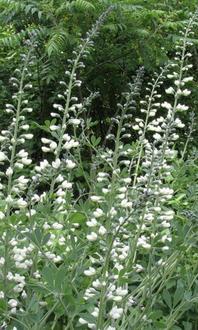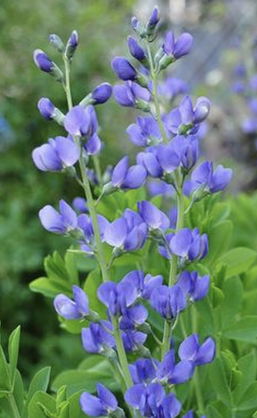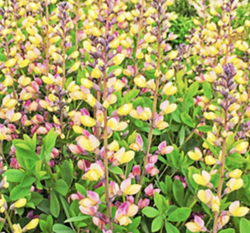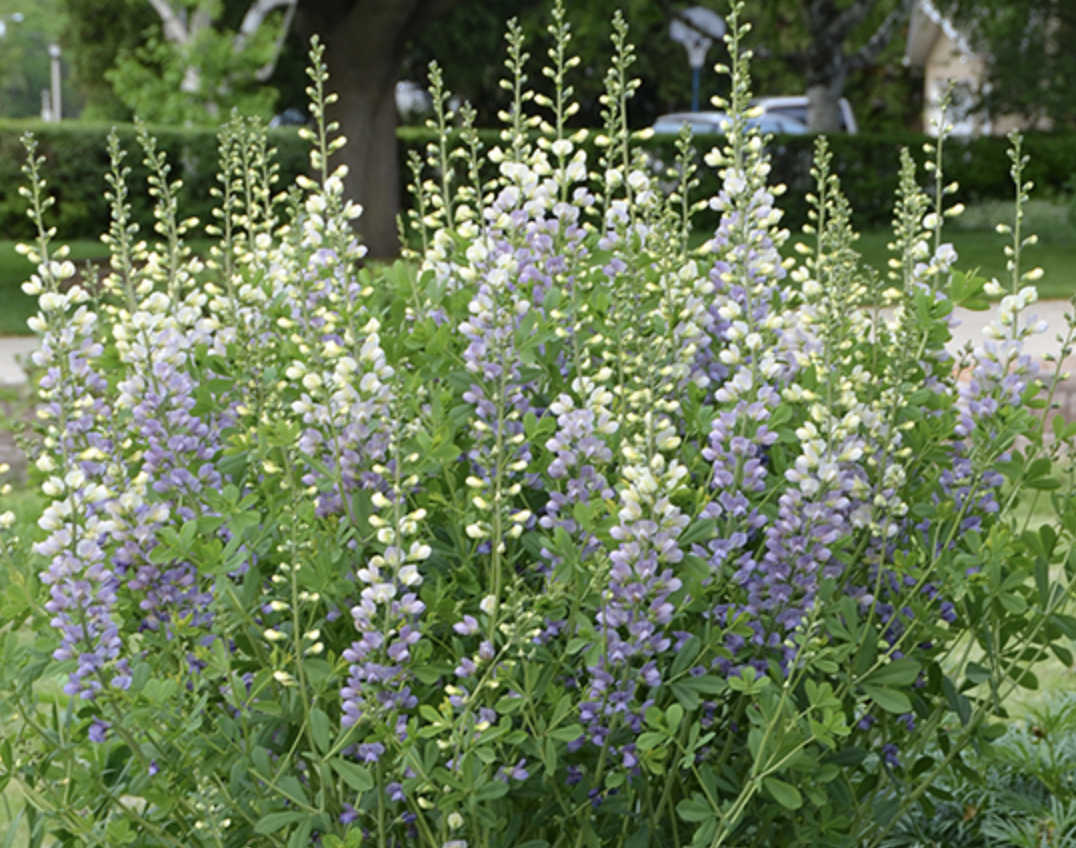|
By Matt S., County Extension Director and Horticulture Agent, Pitt County When I was first learning about plants as a teenager while working at a garden center in Massachusetts, one of the first plants that really grabbed my attention was Lupine. I loved the tall flower stalks, and I especially loved the way drops of water collected in the center of their palmate leaves after watering or rainfall. Lupines are seldom seen in the South as they fair better in colder climates to the north and west.
they are typically grown, Baptisia bloom in early spring for us, with flowers emerging in the first part of April into May. Lupines have palmate leaves with up to 7-11 leaflets per leaf, whereas Baptisia have a more typical trifoliate, or three-part, leaf, as do most members of the bean family.
Many hybrid cultivars are derived from these parents, and those cultivars are typically what you will find when shopping for nurseries. One of the most popular of these is ‘Purple Smoke,’ a fast-growing perennial with 4-foot tall purple flower spikes on dark stems. ‘Carolina Moonlight’ is a pale yellow cultivar that is absolutely serene in bloom, while ‘Screaming Yellow’ is a brighter, more intense yellow. There are also a few bicolor cultivars on the market, including ‘Lunar Eclipse’ (white/pale blue), ‘Twilight Prairieblues’ (magenta/yellow), ‘Pink Lemonade’ (pink/yellow), as well as many cleverly named cultivars that make it pretty clear what color they are: ‘Blonde Bombshell,’ ‘Blueberry Sundae,’ ‘Pink Truffles,’ and even ‘Chocolate Chip.’ There’s a color for everyone.
When planting Baptisia, be fairly certain that you want it exactly where it’s going because Baptisia develop a fairly deep taproot and can be difficult to transplant once established. They like full sun and moist, well-drained soil, but can tolerate drought and poor soils. They are a favorite of bees and other insects, have very few pest problems, and are deer resistant, making them a pretty desirable plant to include in a variety of garden settings. Include in pollinator gardens, native gardens, cottage gardens, or anywhere that you can use some early spring color.
Matthew Stevens is the County Extension Director and Horticulture Agent for North Carolina Cooperative Extension’s Pitt County Center. If you have questions about this article or gardening in general, please contact the Pitt County Extension Master Gardener Infoline at 252-902-1705.
0 Comments
Leave a Reply. |
Matt Stevens
Pitt County Extension Director & Horticulture Agent Archives
July 2024
Categories |




 RSS Feed
RSS Feed